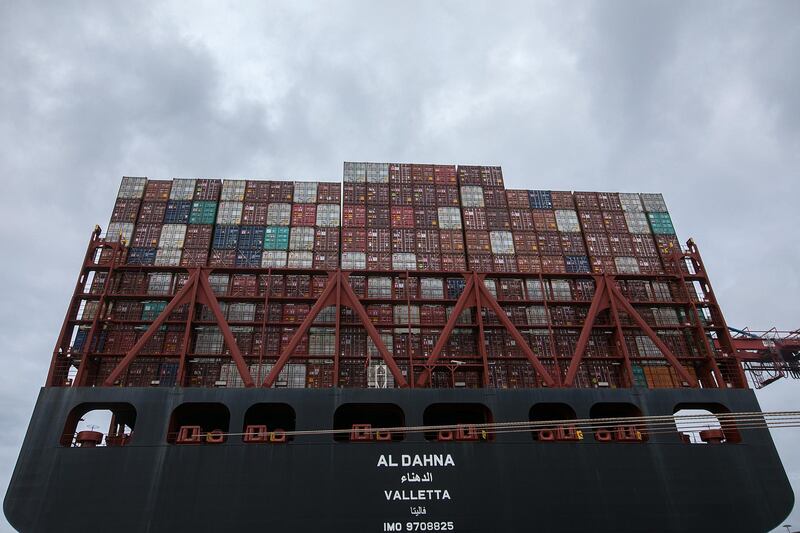German exports plunged unexpectedly in February, posting their biggest monthly drop in 30 months and narrowing the trade surplus, data showed, in a further sign that growth in Europe's biggest economy could have reached its peak.
Seasonally adjusted exports fell by 3.2 per cent on the month, the steepest decline since August 2015, data from the Federal Statistics Office showed. Imports dropped by 1.3 per cent.
A Reuters poll had pointed to exports edging up by 0.2 per cent on the month and imports rising by 0.3 per cent.
"As it looks, we have surpassed the top of the economic upswing," HSBC Trinkhaus analyst Lothar Hessler said, adding that the stronger euro was probably to blame for the weak export figures.
"The German economy will continue to grow, but with less momentum," Mr Hessler said.
The seasonally adjusted trade surplus narrowed to €19.2 billion (Dh86.81bn) from €21.5 bn in January, the lowest since January 2017. The Reuters consensus forecast was for €21.4bn.
_______________
Read more:
New Deutsche Bank CEO hints at investment banking operations review
BMW and Daimler face collateral damage in US trade war with China
_______________
Germany's wider current account surplus, which measures the flow of goods, services and investments, edged up to €20.7bn from €20.3bn in January, unadjusted data showed.
Andreas Scheuerle from DekaBank said the data pointed to an disappointing first quarter.
"It's hard to explain the reasons for this weak start to the year because the good economic conditions have not changed over the past three months," Mr Scheuerle said, adding that record employment and rising wages were a good omen for domestic demand.
He said that protectionist threats from US President Donald Trump could hardly be the main reason for the February decline in German exports.
Still, the prospect of Germany getting caught in the cross-fire of a trade war between the United States and China is worrying German businesses.
The DIHK Chambers of Commerce and Industry said last week an escalation of the dispute over import duties could harm the global economy and weaken demand for German goods and services.
Official data last week showed German industrial output fell by the most in more than two years in February. The Economy Ministry said industry was losing momentum.
Chancellor Angela Merkel is due to visit Mr Trump on Friday.
Mrs Merkel's trip, three days after French President Emmanuel Macron's state visit to the Washington, comes just before the expiry of an exemption for the European Union from US import duties on steel and aluminium.
The visits give the EU leaders an opportunity to lobby for the bloc to be exempted permanently from the tariffs which are suspended for the EU until May 1.






